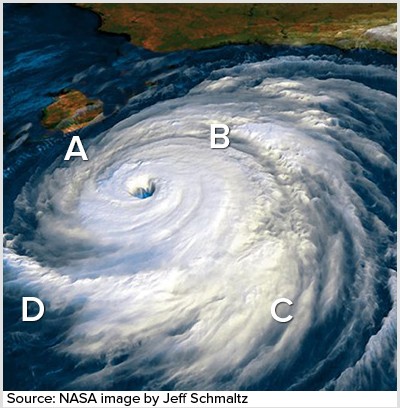In the diagram below, the red arrows represent
A. fluxes that have little environmental impact.
B. fluxes that are constant across time.
C. human-influenced fluxes.
D. fluxes that are increasing over time.
Answer: C
You might also like to view...
Slow Cities refer to those underdeveloped cities of the world's periphery
Indicate whether this statement is true or false.
What is the specific humidity of air at 21°C with 50% relative humidity?
This question show how relative humidity changes as cold, dry outside air is brought inside and warmed. Figure 12.1 shows that as air warms, the maximum specific humidity increases. Therefore, if the air warms but the amount of water vapor stays the same, its relative humidity decreases. Because of this, many people who live in climates with cold winters use humidifiers in their homes to make the air more comfortable. Building engineers recommend that for optimal comfort, inside air should be 21°C, with 50% relative humidity. What will be an ideal response?
The largest flows of refugees from Syria have gone to Lebanon and:
A) Jordan B) Iran C) the United States D) Egypt
The specific heat of iron is 0.11 cal /g·°C. What will be the final temperature if 275 calories are added to a 75.0 piece of iron initially at 25°C?
A) 33°C B) 36°C C) 58°C D) none of these